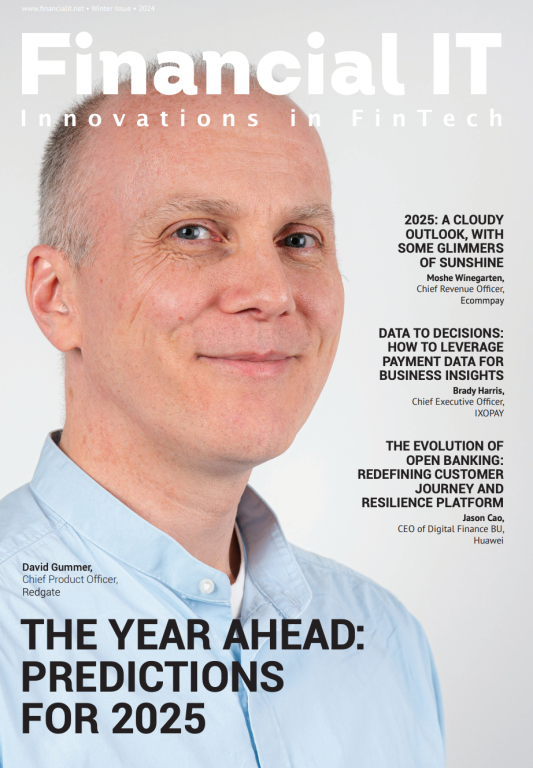Published

Huw Phillips
Director of Sales at Deko
“The slowing of sales throughout September reflects a challenging retail environment borne from issues like fuel and labour shortages. see more
- 03:00 am

- Investment marks first major foreign investment into a Sudanese technology business since sanctions were lifted in 2020 – a major milestone for the tech sector in the country.
- alsoug is the largest digital classifieds and marketplace nationwide and will now expand its reach into fintech and payments, becoming the largest digital payments network in Sudan.
- Fundraise co-led by Egypt-based Fawry and wider consortium of Western venture capital firms.
alsoug, the largest digital classifieds and marketplace in Sudan, has announced the close of a $5 million fundraise to establish a national payments network enabling quick, easy and safe transactions for all Sudanese.
alsoug, which was founded in 2016 and has nearly two million downloads, lets Sudanese consumers and businesses buy and sell any goods and services they need. Listings include real estate, cars, electronics, and furniture, as well as services and job postings. alsoug enables buyers and sellers of goods and services to directly interact with each other.
The investment will expand alsoug’s presence in fintech, building on the company’s payment platform, Cashi, by creating a network enabling people to deposit, withdraw and transfer cash and transact digitally. The expansion will make alsoug the largest digitally driven network of its kind in the country. Alongside its investment in payments, the business will continue to build its marketplace by offering new services for users and ensuring the platform maintains its position as the premier digital buying and selling platform in Sudan.
The fundraising round marks the first international venture capital investment into a technology business in Sudan since international sanctions were lifted on the country following a 30-year period of isolation. Sudan, one of the largest countries in Africa with a population of 41 million, was one of the leading forces in technology in the continent before sanctions led to a period of isolation. With the economy having reopened, alsoug is building on its reputation of integrity, long-term growth and social impact by expanding the technological literacy of the nation.
Tarneem (Nina) Saeed, CEO of alsoug, said: “From our earliest beginnings we have focused on enabling anyone in Sudan to buy and sell whatever products and services they need, no matter who they are or where they live. But today, ordinary Sudanese consumers and businesses still have limited ways to make payments. This investment enables us to expand our services in fintech so that everyone in the country has the financial freedom they deserve and are able to transact in a fast, transparent, simple, and digital way.
“These are exciting times for Sudan, which has a bright future now that it has moved on from a long period of isolation. This was once the land of opportunity in Africa, a country full of natural resources, with a small but educated and very entrepreneurial workforce – and it will be that country again.
“Fintech has been one of the fastest growing industries across Africa in the past decade because of its huge user base. With this fundraising, we expect Sudan to catch-up with the rest of the continent.”
The investment has been co-led by Fawry, the first and largest digital payments company in Egypt and the country’s first unicorn, with a current market cap of more than $1.5 billion. The investment is the first for Fawry outside of Egypt and will see the business support alsoug to build its payments infrastructure, leveraging its in-house technology and experience. Other investors in the round include established Western venture capital funds.
Commenting on the transaction, Fawry CEO Eng. Ashraf Sabry said: “We’re delighted to be kicking off our partnership with alsoug, one of Sudan’s most exciting prospects and a Sudanese leader in tech innovation. This is our first investment outside of Egypt in our thirteen years of operation, and we’re confident that our story with alsoug and Cashi will be a special one. Fawry’s investment in alsoug delivers on our plans to venture into underserved international markets by leveraging our technology and teaming up with strong local players. This investment will allow us to strategically expand our footprint into Africa and transfer the experience we’ve gained in the dynamic Egyptian market to neighboring Sudan, an economy with major potential across several sectors and with a significant pool of entrepreneurial talent. Meanwhile, Fawry’s strategic partnership with alsoug leaves it ideally placed to help guide the platform’s rollout of a countrywide payments system, a feat which Fawry has already managed through a scalable, robust, and best-in-class technology platform.”
Magdi Amin, Senior Advisor to Sudan’s Minister of Finance, said: “Following three decades of sanctions, international isolation and limited official development support, the economy has developed without full participation in the digital revolution that continues to transform industries globally. This is a significant opportunity for Sudan to make up for lost time. We welcome foreign investment into promising Sudanese businesses, a key part of our economic plan to drive growth in the financial, technology, agriculture, mining, and infrastructure sectors.”
Saeed, who is one of the only female tech CEOs in Sudan, added: “alsoug has a critically important role to play in breaking down barriers that are holding parts of society back. Any Sudanese consumer – rich or poor, man or woman – should be able to trade in the products and services they need. I am particularly proud of the important role we have played in breaking barriers for women in the country. By moving traditionally male-dominated public spaces online, we have enabled women to take charge of key life purchases like cars, real estate and electronics, so they no longer have to be reliant on a man.”
Related News
- 03:00 am
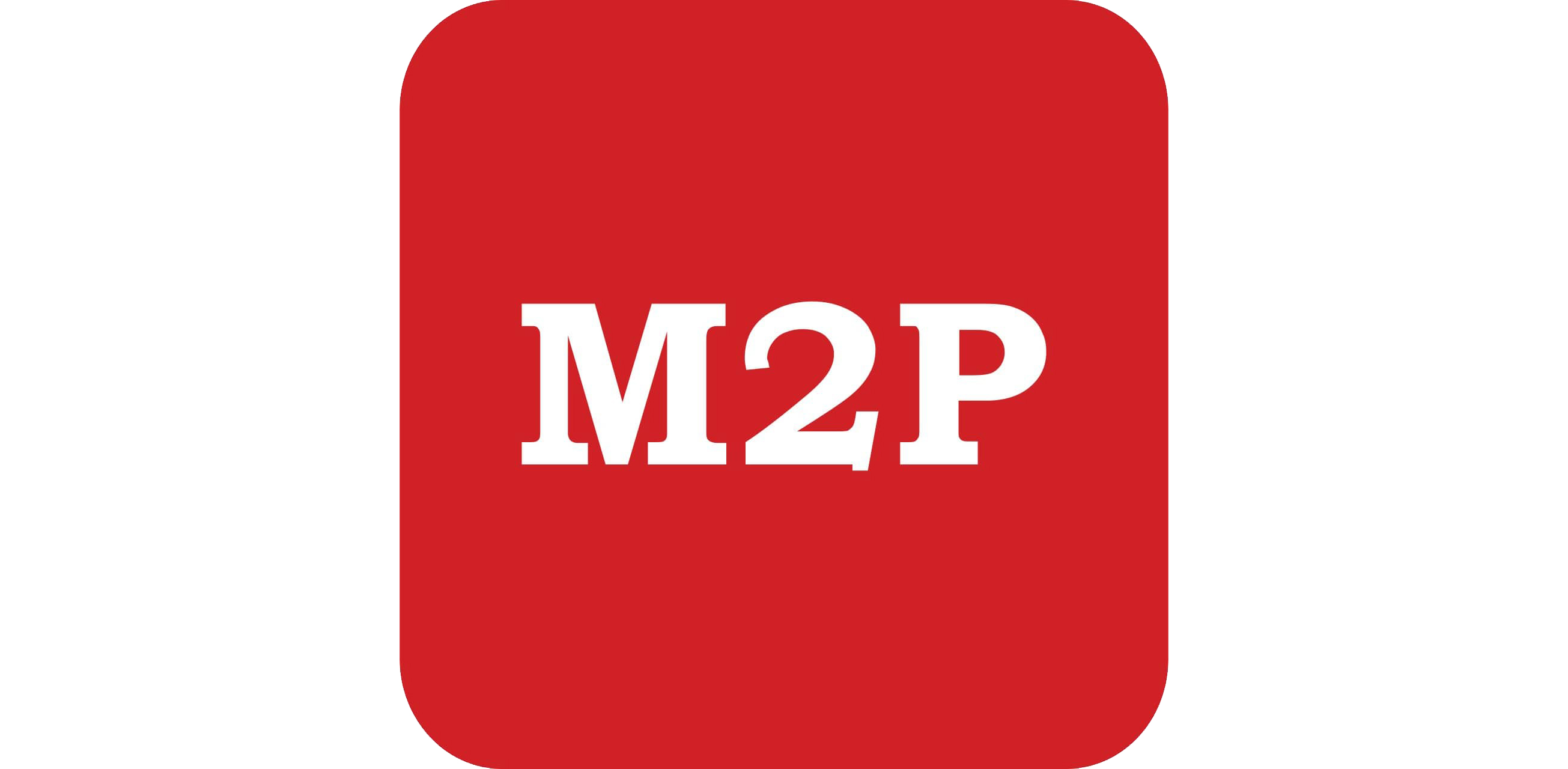
Press Release
M2P Fintech, Asia's largest API infrastructure company, today announced that it has secured US$35 million in a Series C financing. Tiger Global Management led the round with existing investors BEENEXT, Flourish Ventures, Omidyar Network India, 8i Ventures, Better Capital and the DMI Group via its investment vehicle Sparkle Fund participating in the round.
M2P intends to use the fresh funds to enhance its API infrastructure capabilities and expand its reach beyond Asia. M2P’s platform powers some of the leading banks, fintechs and consumer internet companies across Asia becoming the leading fintech enabler in the region.
M2P achieved 400 percent Y-O-Y revenue growth and is processing more than US$10 billion in annualised payments volume across millions of users through 500+ discerning fintech partnerships. M2P has a market presence in India, Nepal, the United Arab Emirates, Australia, New Zealand, the Philippines, Bahrain and Egypt. The company plans to expand its footprint to Indonesia, Bangladesh, Vietnam, and across the MENA region.
Madhusudanan R, Co-founder and CEO M2P Fintech, said, "The founding vision of M2P Fintech is to enable every company to become a fintech. Our immediate focus is to double down on growth in India and the expansion of our team in the UAE, where we have committed to invest more than Dh100 million over the next 18-24 months. We are also aggressively pursuing organic and strategic opportunities that will strengthen our product capabilities to better serve our customers.”
"We are delighted to have the backing of Tiger Global Management, with its track record of investing in category-leading companies. Having built an API ecosystem for unlocking the latent fintech potential in emerging markets, we believe the time is ripe for us to export the capabilities from India to other parts of the world.”, He added.
Alex Cook, Partner, Tiger Global Management, said, “The Indian financial services ecosystem is undergoing an exciting shift to digital across banking, credit, payments, and investing. The M2P platform is enabling this shift, and many of the leading fintech companies have already chosen to work with them. We are excited to partner with Madhu and the rest of the team as they continue to expand the platform and deliver for customers.”
Related News
- 04:00 am
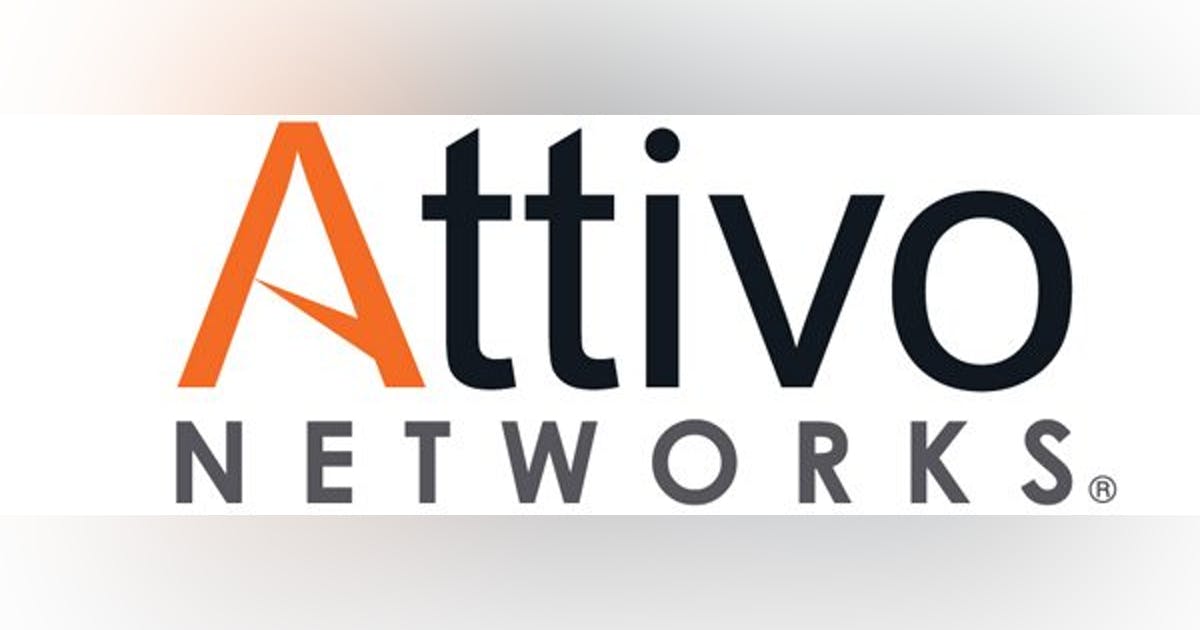
Attivo Networks®, the experts in preventing identity privilege escalation and detecting lateral movement attacks, today announced the availability of a new research report conducted by Enterprise Management Associates (EMA) and commissioned in part by Attivo Networks. The report focuses on Active Directory (AD), the directory-based identity services platform used by 90% of enterprises worldwide, exploring the obstacles and threats organizations face when protecting AD and how they adapt to address these growing concerns.
To download the report: ‘The Rise of Active Directory Exploits: Is it Time to Sound the Alarm?,’ please visit: https://bit.ly/2XXDQ9h
As evidence of the value that attackers place in exploiting Active Directory and the privileges it contains, the report revealed that 50% of organizations experienced an attack on Active Directory in the last 1-2 years, with over 40% indicating the attack was successful. An equally troubling finding was that penetration testers successfully exploited AD exposures 82% of the time, which suggests that actual attack findings may be underrepresented due to lack of visibility to exploits.
In response to Active Directory being under siege, 86% of organizations plan to increase investment in protecting AD. They cite the increased prevalence of AD attacks (25%), an increase in remote or work-from-home activity (18%), an expansion of cloud usage (17%), and prevalence of advanced attacks, such as ransomware 2.0 (15%), as top reasons for doing so.
When asked about protecting against advanced attacks like ransomware 2.0, enterprises provided a range of answers. Nearly two-thirds indicated that they employ AD attack detection tools (64%) and endpoint detection and response (EDR) tools (64%), while just over half use antivirus/endpoint protection platforms (EPPs) (55%). Other notable protection measures mentioned by those in the report include user and entity behavioral analytics (UEBA) tools (40%), SIEM and log analysis tools (36%), and identity detection and response (IDR) tools (27%). Given the relative newness of the IDR category, which began to emerge in 2021, it is promising to see that a significant portion of enterprises has already adopted it.
The report also explored and analyzed security professional’s experiences in protecting Active Directory and its challenges:
- The most feared AD attacks
- Top AD threat vectors
- AD protection techniques and tools
- Pen testing highlights AD vulnerabilities
- Barriers to acting upon and the remediation of AD exposures
- The role AD plays in compliance checks and certifications
- Throughout the survey, there was a trend in the repeated mention of privilege escalation and overprovisioning issues, as well as lack of visibility to understand misuse and policy drift easily. These discoveries all underscored the point that effective Active Directory protection requires diligent permission control and access management but must also include multiple layers of visibility and live attack detection.
“Attackers are leveraging the intricacies of Active Directory to penetrate the environment through an exponential number of attack paths, offering virtually undetectable lateral movement within Active Directory,” said Paula Musich, research director, Security and Risk Management at Enterprise Management Associates. “The good news is that a solid majority of organizations recognize this threat and increased their Active Directory security prioritization in 2021, with plans to increase their spending on its security.”
“The main challenges to protecting Active Directory are detecting live AD attacks, the lack of visibility into the AD environment, and the necessary coordination of communicating AD security across multiple teams,” said Carolyn Crandall, chief security advocate at Attivo Networks. “Attivo’s identity detection and response (IDR) solutions squarely address this gap in protection, offering crucial visibility into the AD environment, allowing organizations to address AD attacks in real-time and identify risks within their AD before malicious actors exploit them.”
Related News
- 09:00 am
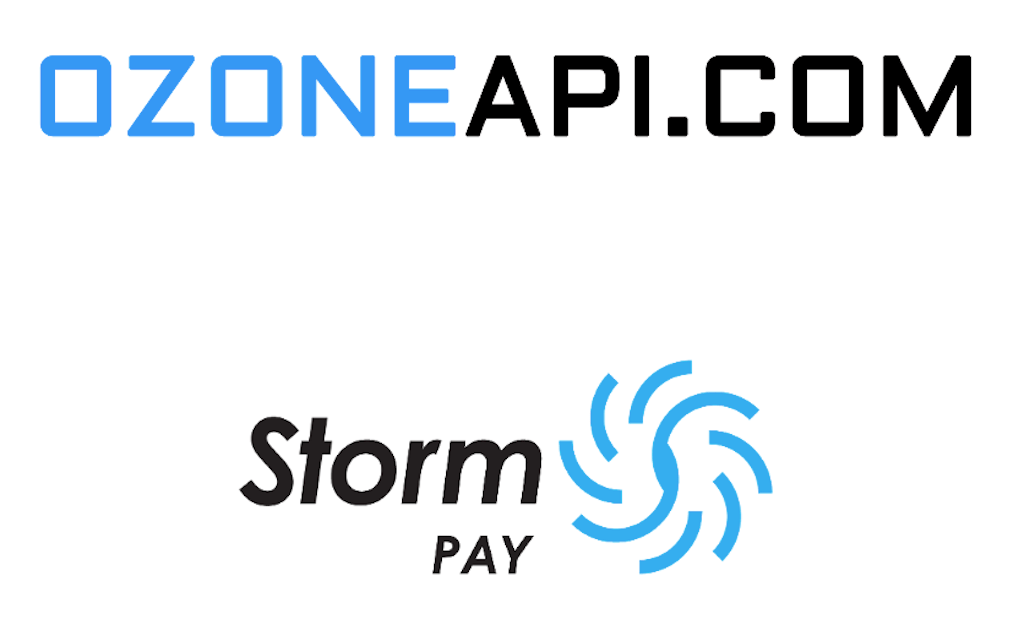
The collaboration will deliver an enhanced customer experience for StormPay’s customers and more control over their data.
Today, we are delighted to announce our partnership with StormPay, a London-based fintech company that provides embedded financial services for both business and personal customers. The collaboration will deliver a truly embedded and digital experience to StormPay’s customers.
Open banking leverages the power of Application Programming Interfaces (APIs), computer programming rules that give service providers like banks and fintechs the ability to connect to third-party service providers more easily and vice-versa. With these seamless and secure communication lines in place, consumers can share their personal and financial data more easily and securely with companies whose services they utilize.
In offering embedded financial solutions to its customers, StormPay turned to Ozone, given its reputation as a leader and pioneer in open banking standards. For fintech firms trying to implement open banking standards on their own, the process can be time-consuming, complicated, and expensive. Leveraging its deep industry expertise, Ozone streamlines the API implementation process, giving its partners standards-based APIs for open banking that help them open up streams of revenue and better serve their customers.
Otabek Nuritdinov, CEO of StormPay, said “We are excited to partner with Ozone to implement open banking services that give our customers more seamless payment experiences. StormPay’s open-banking solution is a win-win both for us and our customers, by making the transaction processes more open and transparent and increasing the data security level we significantly improve the customer experience. We look forward to a long and productive partnership with Ozone as we aim to storm the fintech sector and lead the way in delivering innovative financial solutions.”
Huw Davies, Co-founder and Chief Commercial Officer of Ozone continued “We’re thrilled to be partnering with StormPay. It’s exciting to be working with such an innovator and we look forward to helping them and their customers bring to life exciting propositions based on a solid foundation of really high performing standards compliant open APIs.”
Founded in 2017, Ozone is a leader in open API software, with a mission to accelerate the global adoption of open banking and provide key industry players with the technology to build a thriving ecosystem.
Ozone’s founding team has been involved in the setup and implementation of UK open banking from the outset, having developed the standards for the UK Open Banking Implementation Entity (OBIE) and supplied their official sandbox, as the model example of how to build to this standard.
Today Ozone’s software helps banks and financial institutions of all sizes across the world deliver high-quality, standards-based open APIs that handle the complexity of open banking and open finance.
Related News
- 04:00 am
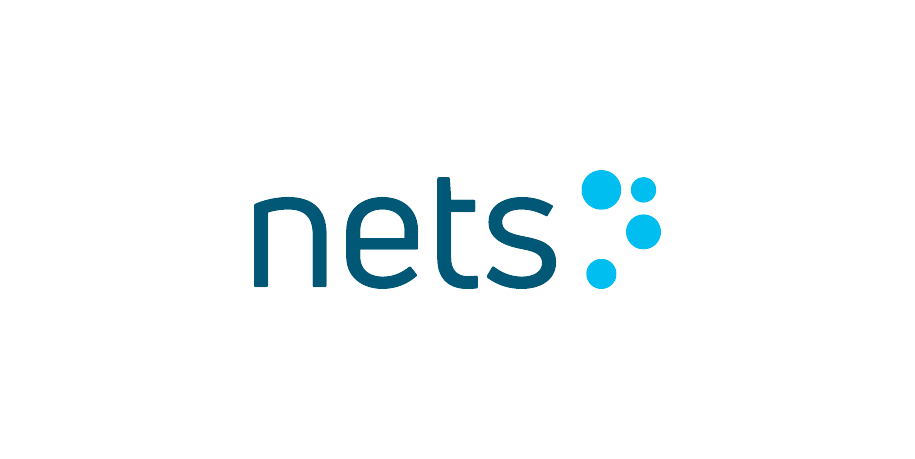
· Danske Bank, Denmark’s leading bank, supported by Nets, will bring Dankort to Apple Pay
· Dankort is the preferred means of payment for Danish consumers and accounts for the largest number of card transactions in the country
Danske Bank, the leading bank in Denmark, is bringing the Danish domestic payment scheme, Dankort, to Apple Pay. This will enable Danske Bank customers to use their co-badged Visa/Dankort card – in physical stores or online – via Apple Pay. Apple Pay is a safe, secure and private way to pay that helps customers avoid handing their payment card to someone else, touching physical buttons or exchanging cash — and uses the power of iPhone to protect every transaction.
“Consumers are increasingly turning to digital payment wallets for secure and convenient payments,” said Torsten Hagen Jørgensen, Chief Executive Officer of Issuer & eSecurity Services at Nets Group. “We want to help issuers across Europe make their payment cards available with Apple Pay. Our collaboration with Thales allows us to offer instant services to multiple issuers, promoting greater uptake of digital payments in Denmark and across the EU.”
Security and privacy are at the core of Apple Pay. When customers use a credit or debit card with Apple Pay, the actual card numbers are not stored on the device, nor on Apple servers. Instead, a unique Device Account Number is assigned, encrypted, and securely stored in the Secure Element, an industry-standard, certified chip designed to store the payment information safely on the device.
Nets, the leading European PayTech, continues to act as Danske Bank’s payment processor and partners with Thales on Token Provisioning Services to support Dankort in Apple Pay. This partnership will enable Nets to support other issuers in Denmark with this feature and international issuing and merchant customers in enrolling other commercial cards or other domestic schemes into the Apple Wallet.
Apple Pay is easy to set up. On iPhone, simply open the Wallet app, tap +, and follow the steps to add Danske Bank’s credit or debit cards. Once a customer adds a card to iPhone, Apple Watch, iPad, and Mac, they can start using Apple Pay on that device right away. Customers will continue to receive all of the rewards and benefits offered by Danske Bank’s cards.
Customers simply hold their iPhone or Apple Watch near a payment terminal to make a contactless payment. Every Apple Pay purchase is secure because it is authenticated with Face ID, Touch ID, or device passcode, as well as a one-time unique dynamic security code. Apple Pay is accepted in grocery stores, pharmacies, taxis, restaurants, coffee shops, retail stores, and many more places. Customers can also use Apple Pay on iPhone, iPad, and Mac to make faster and more convenient purchases in apps or on the web in Safari without having to create accounts or repeatedly type in shipping and billing information. Apple Pay makes it easier to pay for food and grocery deliveries, online shopping, transportation, and parking, among other things.
Related News
- 05:00 am
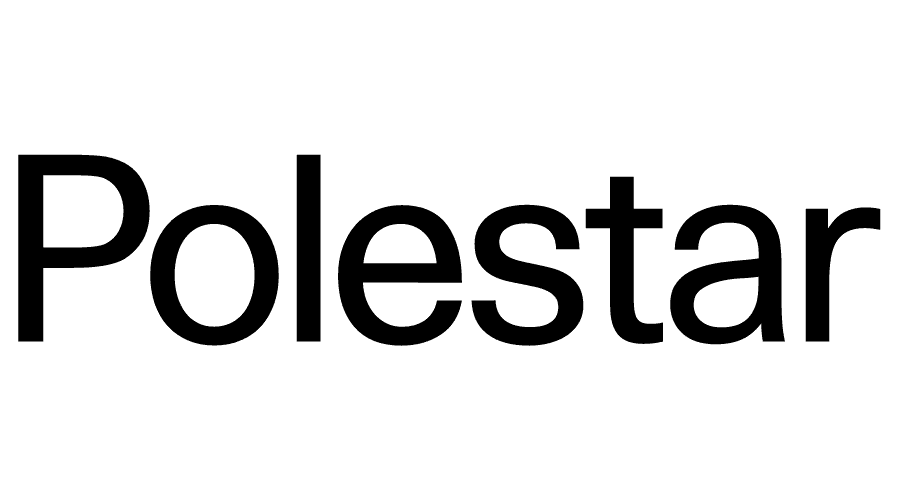
Pole Star is pleased to announce the appointment of Peter Fen as Head of Architecture and Engineering. Peter will drive Pole Star’s solutions innovation to deliver enhanced levels of efficiency, transparency, and sustainability across the supply chain.
With an extensive 25 years of experience in IT and software development, Peter brings advanced skills in software architecture and technology. In his previous role as Principal Software Architect at Triple Point Technology, Peter was actively engaged in strategic initiatives such as modernising technology stack, adopting new technologies, improving the performance and scalability of applications, as well as leading team development and the technology roadmap.
Alongside this, Peter’s personal projects enabled him to explore new technologies and architectures, leading him to work on Vasanda EcoSphere, the primary sustainability screening platform from Vasanda, now a Pole Star Company. As a result, Peter was a key part of the Vasanda x PurpleTRAC API integration and one of the first to recognise the innovative opportunities available for the technologies, and the industry, in combining the two.
With Pole Star recognising Peter’s expertise and practical experience in building scalable software solutions, the appointment of him as Head of Architecture and Engineering creates an opportunity for the expansion of Pole Star’s innovative technology-driven solutions and the chance to make a positive global impact by changing the maritime industry for the better.
Peter says, “The maritime domain is the perfect space for technological and business innovation. Modern-day requirements can only be met by implementing complex and robust solutions that combine advanced technologies and scientific achievements in IT hardware, telecom, space, satellite domain, and software and data processing. These solutions have a wide range of mission-critical applications - from monitoring environmental impact, to improving global logistics efficiency, and saving human lives. My mission is to build the next generation maritime technology platform, bringing the maritime industry to a new level of efficiency, transparency, and operational excellence and to make a positive global impact on the world we live in.”
“The appointment of Peter as our Head of Architecture and Engineering marks a new phase in Pole Star’s mission to innovate and expand following our successful growth investment earlier this year,” says Julian Longson, CEO of Pole Star. “Peter has the technical skills and depth of experience required to overhaul our solutions as the maritime industry enters a period of fast-paced digital transformation and shifts its focus to sustainability. His drive to constantly develop and enhance technologies is a perfect fit for Pole Star as the longstanding pioneer of maritime solutions, so we welcome Peter’s expertise and look forward to him taking us on this journey.”
Related News
- 09:00 am
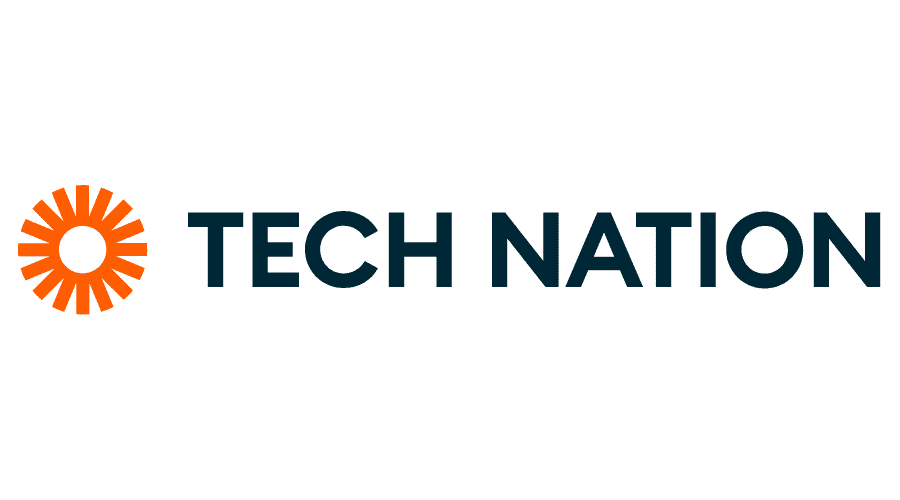
Tech Nation welcomes 31 fast-growing tech companies from across the UK into its Upscale growth programme
- 31 companies have today been accepted into Tech Nation’s Upscale growth programme for fast growing mid-stage scaling tech companies
- Nearly a quarter of the companies selected come from healthtech, and a sixth are edtechs, following a bumper year for these sectors
- These companies’ success reflects the wider growth of the UK’s mid-stage scaling tech companies (at Series A), which have raised $2.7bn in the first half of 2021 (Jan-June) alone - an all time record - up from $2.4bn in the whole of 2020
Tech Nation, the UK’s leading growth platform for tech scaleups, today announces the 31 mid-stage scaling tech companies that have been accepted into Upscale 7.0 - the seventh iteration of the Upscale programme, which supports the UK’s fastest-growing mid-sized (Series A) tech companies to overcome common growth challenges and scale faster. This is a critical time in every scaleup’s journey, as around 60% of companies that raise Pre-Series A funding fail to make it to Series A or beyond.
The success of these 31 companies - which have an average growth rate of 250% - reflects the strength of the mid-sized market overall, which is growing faster than ever across the board, with mid-stage scaling tech companies (at Series A) having raised $2.7bn in 2021 so far - an all time record - up from $2.4bn in 2020. The top three fastest scaling sectors are fintech (the fastest scaling sector), then healthtech and then transport tech.
The UK currently has 136 tech ‘futurecorns’ (fast-growing tech businesses set to achieve a $1bn+ valuation) in the pipeline, demonstrating the rapid growth of UK tech as companies innovate to solve social, economic and environmental challenges.
Digital Secretary Nadine Dorries said: "It's fantastic to see so many fast-growing scaleups creating wealth and well-paid jobs up and down the country. Through organisations like Tech Nation, this government is helping people across the UK get the skills they need to work in this fascinating industry and supporting businesses with pro-innovation policies so they can continue to grow and thrive."
Nearly a quarter of the new cohort companies specialise in healthtech
Healthtech is one of the sectors experiencing the strongest growth in mid-stage UK tech companies, with Series A stage companies in the UK having raised $674mn in 2021 so far, up 66% from $404mn in 2020 and up 69% from $398mn in 2019. UK healthtech as a whole received $5.6bn overall investment in 2021, more than double its investment in the whole of 2020 ($2.5bn) and 2019 ($2.4bn). Much of this growth capital is being deployed to hiring in these scaling firms, driving job vacancies, and providing opportunities in tech for candidates with a range of tech, clinical and non-tech skills.
Seven of the companies joining Upscale 7.0 specialise in healthtech, and are focussed on transforming modern physical and mental health care. Nourished, a Birmingham-based, female-founded healthtech scaleup, has developed a patented 3D printing technology for producing printed vitamins, while London-based healthtech Birdie is using machine learning to reinvent elderly care so that our aging population can live healthily and happily at home for longer.
Companies transforming mental health care include Healios, which has built a comprehensive virtual clinic (covering multiple complex specialist assessment and psychological intervention services) to empower children, young people and families affected by mental health and neurodiverse conditions, while HelloSelf uses AI to provide customers with personalised therapy, coaching and psychological advice.
5 of the new Upscale cohort are edtech companies - a sector which is rapidly growing in the UK
In the UK, edtech investment has also reached new heights - increasing from $113mn in 2020 to $319mn in the first half of 2021. This is largely a result of edtech companies’ procurement cycles having been massively reduced by the Covid-19 pandemic.
The edtech companies in Upscale 7.0 reflect the wide variety of emerging edtech solutions in the UK - which aim to improve the way students learn at schools and Universities, encourage children to learn with their families at home, and even improve how professionals approach self development at home and in the workplace.
One edtech company joining the Upscale programme is Glean, which has developed a note-taking solution to improve learning from classes, lectures, and other educational environments, along with Kidadl, which specialises in ‘family edutainment’. Kortext has built a digital platform for Universities to share learning materials with students, and Learnerbly has built a workplace learning platform for businesses to help employees accelerate their personal and professional development.
Fast tracking growth across the UK
Over a third (11) of the companies in Upscale 7.0 hail from outside of London, with 2 companies from Scotland (Edinburgh-based Amiqus Resolution and Cyan Forensics) and one from Northern Ireland (Belfast-based TriMedika). Notably, a third (10) of the latest cohort companies have female founders or co-founders.
Upscale 7.0’s mission
The six-month government-backed Upscale programme was designed to support and scale the most promising mid-stage tech companies in the UK - at a critical stage of growth.
Companies accepted into the Upscale programme will receive over 60 hours of support at world-class coaching sessions (delivered by over 20 expert scale coaches), attend networking events with key stakeholders, peers, corporates and investors, and have access to a range of online resources, designed to tackle fundamental scaling challenges around culture, talent, international expansion and financing.
Empowering all of the scaling companies in the new Upscale cohort is at the core of Tech Nation’s mission to fuel the growth of tech scaleups who are helping us create a stronger economy, society and future.
Tech Nation is pleased to announce that Cooper Parry, Cooley and Silicon Valley Bank will be Programme Partners for this year’s Upscale programme and will provide invaluable support, expertise and insights to the Upscale 7.0 cohort.
Quotes:
Liam Ward, Upscale Programme Lead at Tech Nation, said: “I’m delighted to welcome all of these ambitious, fast-growing tech scaleups to the Upscale programme this year. The impact these companies’ innovative solutions are already having on people’s lives across so many industries is evident from their combined revenue of over £90 million, and it’s fantastic to see investors taking note of the potential these tech companies have not only to scale but to transform every corner of society for the better.”
Check Warner, Partner at Ada Ventures, Co-founder of Diversity VC and Upscale 7.0 judge, said: “The depth, breadth and diversity of this year’s Upscale cohort is indicative of the positive evolution of the UK’s startup and scaleup ecosystem. It’s fantastic to see a third of the cohort with female founders or co-founders, and companies represented from Yorkshire, Scotland and Northern Ireland. The Upscale programme is going to supercharge these companies to the next stage of hyper growth, which is great news for investors, founders and the economy as a whole.”
Onur Aydogan, Venture Manager at Oxford University Saïd Business School/Creative Destruction Lab Oxford, Mentor at CERN Student Entrepreneurship Programme (CESP), and Upscale 7.0 judge, said: “It is truly amazing to see the range and diversity of this year's Upscale cohort. Indeed, I am equally delighted to see companies represented from different locations of the UK, including the North of England, Scotland, and Northern Ireland. We believe these companies are at the right stage and time to take this amazing opportunity to accelerate their growth plans. Cohort companies will have the right help and support they need in the Upscale programme on their journey to become superstars of the UK economy. I have no doubt that the innovations and technologies Upscale companies are working on will not only make an impact in society but will continue to create hundreds of jobs in the UK.”
Divinia Knowles, Leadership Coach, Startup Advisor, Ex-COO of Pact & Mind Candy and Upscale 7.0 judge, said: "Having been a judge for the last few Upscale cohorts, it is fascinating to see how the range and diversity of these brilliant and disruptive companies continues to grow. The Upscale 7.0 cohort is a great demonstration of this. It is enormously inspiring to see these companies innovating across different sectors that have such an impact on people's lives, health and wellbeing. The Upscale programme is a brilliant opportunity for these companies to come together, learn and scale effectively. I can't wait to watch their progress."
Mandeep Singh, Co-founder and Former CEO of Trouva and Upscale 7.0 judge, said: "Judging this year's Upscale cohort was a very difficult task. The competition was fiercer than ever, which is testament to the tremendous growth of the UK tech ecosystem, and how important technology has been during the Covid-19 pandemic. A huge congratulations to the companies that have made it. As an Upscale alumni myself, I know first-hand how the programme can help springboard these companies to their next stage of growth."
Related News
- 07:00 am
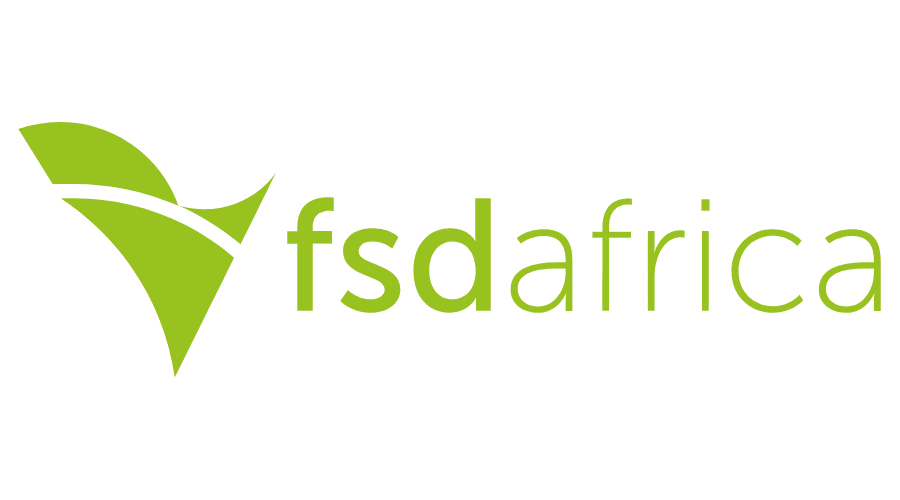
- Investment in 4R Digital Ltd to build a platform that will use digital technology to help democratise access to climate finance for small, green projects in Africa
- The Carbon Value Exchange’s (CaVEx) use of remote monitoring technology will create verifiable carbon credits from projects such as solar pumps, electric vehicles, and nature-based solutions, as well as use digital finance to deliver proceeds from credit sales directly to project participants
- 4R Digital’s co-founder Nick Hughes to reveal details at the AFSIC Investing in Africa Conference in London on 12th October.
For immediate release
FSD Africa, the UK Government’s flagship financial sector programme in Africa, is making an initial investment (£650,000) in a highly innovative digital solution connecting carbon credits from small-scale green projects across the global south to international buyers. The investment will deliver funding through the test phase of the solution being developed by Nick Hughes, who led the development of Africa’s revolutionary mobile money service M-PESA.
Hughes is co-founder of 4R Digital, a green fintech start-up developing financial solutions for a range of business partners committed to climate positive projects in Africa spanning distributed solar energy, electric mobility and nature-based schemes. 4R Digital is building a solution that connects these projects to investors looking to offset greenhouse gas emissions at the same time as supporting locally-led climate action.
Voluntary markets allow individuals, organisations or governments to offset their greenhouse gas emissions by purchasing credits from projects that prevent, reduce, or remove an equivalent level of carbon. However, the markets are currently dominated by large-scale projects such as wind farms and waste-to-energy plants while smaller players struggle to complete the complex and costly process of verifying the emissions they have helped avoid or absorb. 4R Digital’s Carbon Value Exchange (CaVEx) is being developed in response to this challenge.
CaVEx leverages technological innovations such as the Internet of Things (IoT) and machine to machine connectivity to remotely monitor tiny levels of activity by connected devices such as solar pumps and e-vehicles and to calculate their impact on carbon emissions.
By pooling and aggregating these data, the platform centralises verification of emission reductions, significantly cutting the cost for these projects to issue high quality carbon credits. The exchange also enables micro-payments from the sale of carbon credits to be digitally transferred direct to the individuals involved in the projects, increasing the flow of capital to locally-led initiatives that both combat the climate crisis and support incomes in developing economies.
To ensure the exchange meets international standards for verification, 4R Digital will engage an expert third-party organisation to audit the system. This evaluation will give purchasers confidence that each carbon credit they buy translates directly into an equivalent reduction or removal.
Over the last year FSD Africa has been working with 4R Digital to test the feasibility of using digital technology to open up access to climate finance, committing £250,000 in grant funding. It has now approved a further investment of £400,000 in the form of a convertible grant to enable 4R Digital to build a functioning version of the platform around several use cases, bringing the total investment to £650,000.
The investment is one of a number of new initiatives by FSD Africa as part of its increased focus on green finance. By working with partners to develop robust regulatory and policy frameworks FSD Africa aims to strengthen the continent’s capacity to tap into the growing pool of international ESG funds whilst also building a pipeline of investable and scalable projects that are aligned with a low-carbon and climate-resilient future.
Nick Hughes, Managing Director of 4R Digital, said:
“There are many projects that simply cannot access climate finance because of the overhead costs associated with the processes involved and concerns on the ’buy side’ about the accuracy of credit sources. Advances in digital technology and connectivity let us remove barriers on both sides and ultimately enable more finance to flow to worthwhile initiatives in the global south. We’re pleased to move this from concept into pilot with partners who are committed to seeing real action on the ground”.
Juliet Munro, Director, Digital Economy at FSD Africa, said:
“This investment is a demonstration of the important role development finance can play in providing early-stage funding for high-risk, high impact projects that would otherwise struggle to find the necessary capital.
“It is illogical that Africans highly exposed to environmental change find themselves barred from carbon markets intended to fund our fight against the climate crisis. 4R Digital is developing a revolutionary solution with the potential to throw open international sources of finance for entrepreneurs, farmers, and small businesses in developing countries. The early-stage funding FSD Africa has committed so far will enable it to take the next step of its journey, delivering a viable product to demonstrate its enormous potential and opening the way for private finance to play its crucial role”.
Watch Nick Hughes of 4R Digital talking about CaVEx at the FSD Africa Panel: Pushing frontiers in digital finance at the AFSIC Investing in Africa Conference in London at 4:40pm on Tuesday 12 October 2021.
You can also find out more details by visiting the FSD Africa exhibition stand at AFSIC where the 4R Digital team will be giving a presentation on the technology and meeting interested parties.
Related News
- 02:00 am
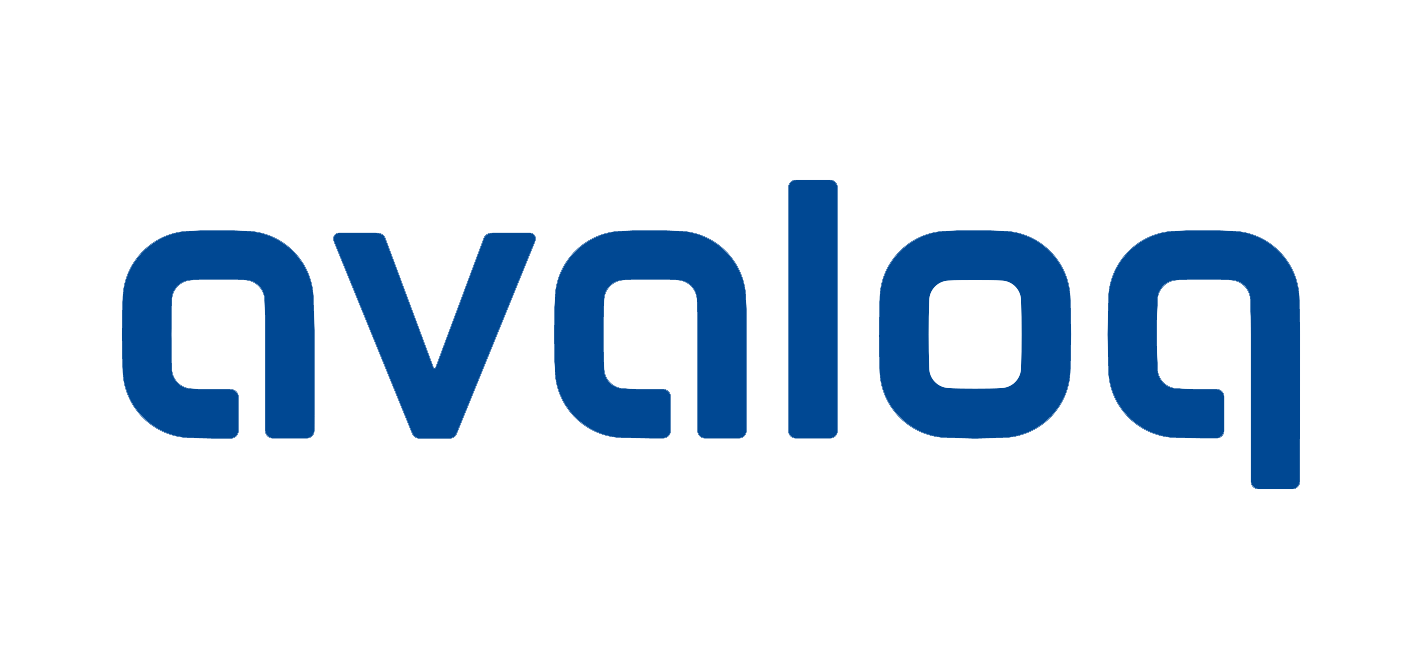
The two banks are expanding their long-standing partnership with Avaloq by moving their respective web and mobile banking solutions to Avaloq’s Engage platform.
Founded in 1899, Basler Kantonalbank (BKB) is one of Switzerland’s leading cantonal banks and the owner of Bank Cler, a successful Basel-based retail bank. Both banks have been using Avaloq’s core banking solution since 2007 to leverage synergies across the whole value chain. Now they have decided to further integrate their front-to-back solutions by migrating their web and mobile banking solutions to Avaloq’s Engage platform. The migration project has already started, and the go-live is planned for 2023.
Avaloq’s web and mobile solutions are part of the Avaloq Engage product line, which provides financial institutions with cutting-edge banking solutions that allow them to interact with their clients through multiple digital and mobile channels. The new and improved web solution features a future-ready technology stack with innovative functionalities such as chatbots, self-onboarding and analytics capabilities. Avaloq’s mobile solution supplements the web banking offering with a native app, providing a highly personalized user experience.
Basil Heeb, CEO of BKB and Chairman of Bank Cler, said: “Due to changes in the way people are living, our clients are increasingly looking for banking services that are provided through digital channels. BKB and Bank Cler are therefore committed to investing in a state-of-the-art web and mobile infrastructure for a seamless end-to-end digital client experience. Building on our long-standing partnership with Avaloq, we are confident that this project will be a major milestone in our digital transformation journey.”
Martin Greweldinger, co-CEO and Chief Product Officer at Avaloq, said: “Avaloq’s constant innovation is a direct result of the active collaboration with our clients based on strong partnerships. BKB and Bank Cler have been members of the Avaloq Community for 14 years – during which time we have seen enormous developments in the web and mobile banking field. We are looking forward to continuing to drive this change with our clients so they can offer their clients state-of-the-art products and services.”

